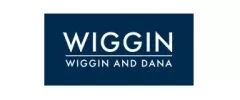- within Intellectual Property topic(s)
- in United States
- with readers working within the Advertising & Public Relations and Law Firm industries
- within Intellectual Property, Antitrust/Competition Law, Litigation and Mediation & Arbitration topic(s)
Earlier this month, the U.S. District Court for the Northern District of Illinois invalidated two patents for a menu comparison methodology, highlighting an important ruling for the patent community.1 Plaintiff Bootler (d/b/a FoodBoss) brought suit against Google claiming that Google infringed U.S. Patent Nos. 10,445,683 ( '683) patent and 11,037,090 ( '090 patent).2 The claims of the '683 and '090 patents are directed to methods for generating and storing a searchable aggregated database of restaurant information sourced from multiple food and beverage delivery services.3
FoodBoss alleged that Google, through Google Food, was infringing the '683 and '090 patents by providing a searchable aggregated data structure for a networked application.4 In response, Google filed a motion to dismiss FoodBoss's lawsuit, claiming that the '683 and '090 patents were invalid because they were directed to unpatentable subject matter, i.e., abstract ideas that lacked any inventive concept.5 FoodBoss argued that the invention of the '683 and '090 patents allowed consumers to compare menu items and prices for food available through food delivery services such as Grubhub, UberEats, and other food delivery services.6
To assess patent eligibility under 35 USC 101, courts have adopted a two-prong test for patentability, referred to as the "Alice test."7 The first prong examines whether the claims are directed to patent-ineligible concepts, such as a law of nature, a natural phenomenon, or an abstract idea.8 If the answer is yes, the second prong then examines whether the claim elements, individually or in combination, transform the nature of the claim into patent-eligible subject matter.9 If the answer to the second prong is no, then the invention is considered to be ineligible for patenting.10
In prong one, the Court examined whether the claims of the '683 and the '090 patents improved computer capabilities or whether they were directed to a process that is considered an abstract idea and merely utilizes a computer as a tool.11 Claims that are directed to utilizing a computer as a tool are considered patent ineligible.12 The Court characterized the claims of the '683 and '090 patents as "directed to a process of taking multiple data sets (i.e., menu items and prices from various restaurants) and combining then into a single data set (i.e., the master data set), which can then be searched by customers"13 and held that "[t]his is a patent-ineligible, abstract idea."14 The Court reasoned that the claims of the '683 and '090 patents do not improve computer functionality, but rather involve methods that could be performed by a human being using a pen and paper.15 Based on this ruling, the Court then went on to examine patentability under prong two.16
When determining subject matter eligibility under prong two of Alice, the Court must examine if the claims as a whole recite additional features, limitations and steps that add an inventive concept, rather than merely describe the abstract idea or method alone.17 FoodBoss argued that even if its individual claim elements are not considered patentable, the ordered combination of those claim elements embodies an inventive concept that is patentable, In support, FoodBoss cited Bascom Glob. Internet Servs., Inc. v. AT&T Mobility LLC18, where the Federal Circuit held that despite the asserted claims being directed to the abstract idea of filtering Internet content, the claims were patentable because they recited an inventive concept in the non-conventional and non-generic arrangement of known, conventional components. Here, however, the District Court distinguished Bascom, finding that "FoodBoss has not pointed to any 'additional features' that are 'more than well-understood, routine, conventional activity.'"19 As such, Google's motion to dismiss was granted.20
With an explosion in computer-implemented inventions in our current digital age, there are several key considerations when seeking to protect software-based innovations. Of particular importance when drafting patent claims directed to data-centric, software-driven technologies, it is critical to tie the claims to a specific technical improvement, rather than a broad abstract idea. The technical improvement could be a new algorithm, a unique user-interface or display, or an inventive way to integrate software and hardware components. Claims that merely recite functional results, describing what a system does without explaining how the results are achieved, are likely ineligible for patent protection. Lastly, it is important to include claim limitations that go beyond generic data processing and recite real-time adaptations, predictive modeling or integration of information/data with physical systems. By clearly demonstrating a specific technical solution to a technical problem, software-based inventions will be more likely to withstand subject-matter eligibility challenges.
Footnotes
1 Bootler, LLC v. Google, LLC, 1-24-cv-03660 (NDIL Sep. 4, 2025) (Jeffrey I. Cummings)
2 Id.
3 US 10,445,683 and US 11,037,090
4 Id.
5 Id.
6 Id.
7 Alice Corp. Pty. Ltd. v. CLS Bank Int'l, 573 U.S. 208, 216 (2014).
8 Bootler, LLC v. Google, LLC.
9 Id.
10 Id.
11 Id.
12 Id.
13 Id.
14 Id.
15 Id.
16 Id.
17 Alice Corp. Pty. Ltd. v. CLS Bank Int'l.
18 Bascom Glob. Internet Servs., Inc. v. AT&T Mobility LLC, 827 F.3d 1341 (Fed Cir. 2016).
19 Bootler, LLC v. Google, LLC
20 Id.
The content of this article is intended to provide a general guide to the subject matter. Specialist advice should be sought about your specific circumstances.
©2007 Wiggin and Dana LLP



